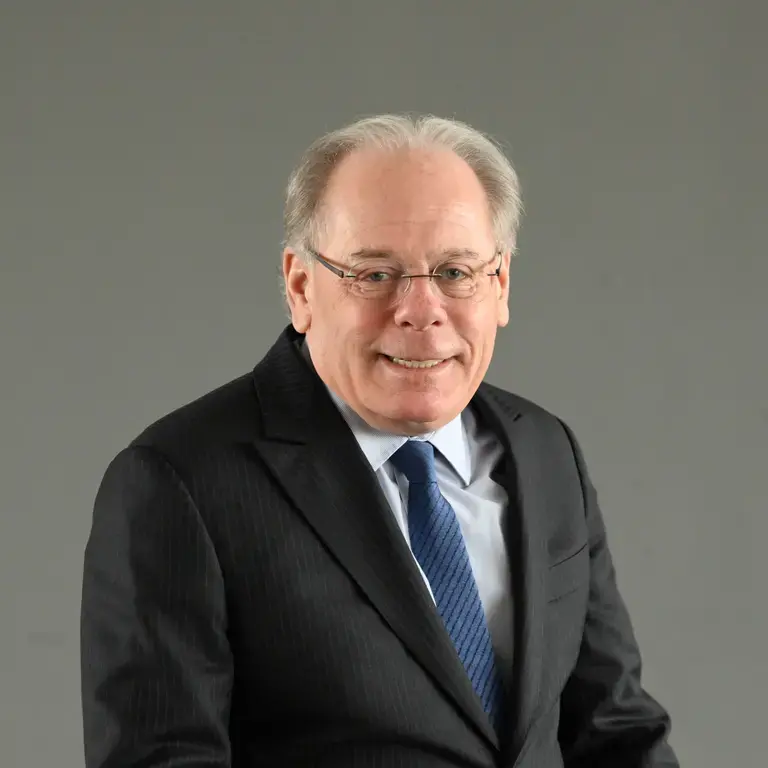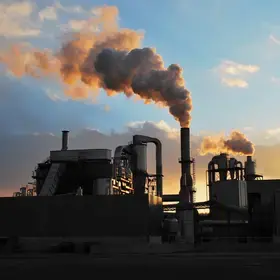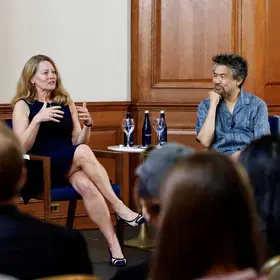In a few days, my eldest granddaughter will celebrate her seventh birthday. I am fortunate beyond words to have two extraordinary daughters and three wonderful granddaughters. I give a great deal of thought to the planet they will inherit. When I read about environmental goals for the middle of the 21st century, I recognize that while I probably won’t be around to see the world reach or miss those goals, I pray that all of them will be. Since the middle of the 1970s, I have worked on environmental policy, and during the 21st century, I’ve put a great deal of effort into developing master’s programs to educate a new type of sustainability professional. I do this because I believe we have an ethical responsibility to protect environmental quality. Humans did not create this planet; it is the ultimate divine gift. God gave us this treasure, and I cannot understand how anyone who claims to be religious would deliberately destroy it. And yet we see supposedly devout state attorneys general working overtime to stop the U.S. Environmental Protection Agency (EPA) from preventing pollution. They have many rationales and excuses, but rather than proposing a better way to protect the planet, they are content to stop those who are trying to do just that. I consider the acts of these pollution enablers to be unethical and shameful. If you don’t like EPA’s approach, how would you suggest we keep our planet intact for our children and grandchildren?
I am far from the most religious person you will ever meet, but I believe there is a God and that the miracle of life is just that: an act of divine creation. I do not think we should pursue environmental protection to the exclusion of other important goals and values, but I think deliberately poisoning people and the planet is evil. I recognize that sometimes we have no choice but to damage the planet. A nation defending its freedom in a war may need to sacrifice ecosystems to continue its way of life. Sometimes, feeding our human population requires that we damage the environment. In these instances, our goal should be to minimize damage and repair what we can as soon as we can. When corporations and their political enablers deliberately cause pollution and fight efforts to reduce it, they are maximizing rather than minimizing damage.
Environmental ethicists would consider me a shallow ecologist and someone who practices anthropocentrism, a belief that human well-being is central. Deep ecologists consider planetary well-being to be self-justifying. I find it inconsistent to favor ecological well-being over other values while enjoying the benefits of modern technology. Moreover, with over eight billion people on the planet, I think it is too late to live in complete harmony with nature. As I often say, we have too many people and too little planet to enable us to “go back to the land.” But it is not too late to use our ingenuity and sense of self-preservation to design a high-tech circular economy that maximizes human well-being while minimizing environmental damage. That has been the topic of my last two books: The Sustainable City (second edition with Dong Guo, 2021) and Environmentally Sustainable Growth (2023).
The pragmatic problem with ideological anti-environmentalists is that they seem to believe the damage humans inflict on the environment is cost-free. Climate deniers lead this delusional pack. It is incredible to me that the Governor of Florida can lead a state experiencing sea level rise, hurricane winds, and massive flooding while denying that climate change is making things worse. Science is clear that much of the increase in global warming is being caused by human technology. Insurance companies are abandoning Florida because they can’t predict the cost of damage from climate-induced extreme weather. Every evening on the national news the reporters begin with video images of forest fires, floods, droughts, tornadoes, and countless examples of extreme weather events. Yes, some of the damage is because more people live in the pathway of destruction, but some of it is because a warming planet is making our weather more extreme. An early July hurricane just hit the Caribbean in places that rarely see hurricanes, and the hurricane formed much earlier than usual. The ocean is warmer than normal, and the weather is a response to that. Climate attribution science can now separate the “natural” causes of extreme weather from human-induced change, and some of these impacts are caused by human-made greenhouse gases.
But climate change is only one source of costly environmental damage. Toxics, plastic waste, microplastics, invasive species, and ecosystem destruction all have costly impacts. Over the last four decades, the U.S.A. has spent about a trillion dollars on containing toxic waste and removing toxic waste from sensitive environments. We are paying the overdue bill for careless management of human-made chemical poison. There is no such thing as a free lunch. When someone gives you a free sandwich in a bar, they expect you to buy a few beers. The costs of the damage we cause will eventually need to be paid.
But pragmatic considerations aside, let’s return to our focus on morality and what is right and what is wrong. Back in 2017, I wrote:
“The recent birth of my first grandchild reinforces my desire to believe that the world that she will inherit will be at least as good as my world, if not better. At the start of my graduate studies, I remember reading Robert Heilbroner’s, An Inquiry into the Human Prospect, and its remarkable postscript, “What Has Posterity Ever Done for Me?” Heilbroner admitted there was no economically rational way to justify a concern for the distant future, but nevertheless believed that we would still somehow manage to care about it. In one version of this essay, published in the New York Times in 1975, he observed that:
“…I am hopeful that in the end a survivalist ethic will come to the fore… from an experience that will bring home to us…the personal responsibility that defies all the homicidal promptings of reasonable calculation. Moreover, I believe that the coming generations, in their encounters with famine, war and the threatened life‐carrying capacity of the globe, may be given just such an experience. It is a glimpse into the void of a universe without man. I must rest my ultimate faith on the discovery by these future generations, as the ax of the executioner passes into their hands, of the transcendent importance of posterity for them.”
I find it amazing and remarkably inconsistent that the same ideology that advocates posting the Ten Commandments in every classroom opposes telling chemical companies to stop emitting toxic substances into the air and water. Heilbroner argues for an ethics of human survival dominating economic rationality. I am adding to that argument a moral argument that wanton and purposeless destruction of the planet is evil and wrong. The only way for ideologues to avoid this moral dilemma is to deny the science of ecology and the environment. They must somehow pretend that toxic chemicals are not actually toxic. When they do that, they are either deluding themselves or lying. Which is it, Governor DeSantis? The other way to avoid ethical responsibility is to argue that you oppose regulation because it is a bad tactic. In that case, what is the alternative you propose, red state Attorney General? What approach would work better?
The conservative argument is that environmental regulation, in fact, all regulation, inhibits economic development. My argument is that environmental regulation encourages technological innovation. The regulatory push for a cleaner environment has stimulated the development of catalytic convertors, electric vehicles, solar cells, more efficient batteries, stack scrubbers, anaerobic digesters, and energy-efficient smart grids, to cite a few examples. In the final analysis, it is clearer than ever that something as essential as clean air and water has been subsumed under the red state-blue state culture war. Politicos opposing environmental regulation are more interested in accumulating political power than ensuring that people live in a clean and safe environment. Power corrupts and, in the case of environmental protection, leads public officials away from the path of morality and good. When people are threatened by a sudden emergency, first responders help save them and are appropriately applauded and thanked for their service. When people are threatened by danger that develops slowly and whose cause is less obvious, some question the presence of the threat itself. They even question the integrity of those seeking to mitigate these subtle dangers.
Environmental damage can happen rapidly and dramatically, like the toxic train wreck in East Palestine, Ohio, or develop slowly and behind the scenes, like the gradual development of global warming or biodiversity loss. In all of these cases, there is an ethical imperative to prevent or respond to the damage we have done. We owe it to the humans and other creatures who follow us. It is our debt to posterity.
Views and opinions expressed here are those of the authors, and do not necessarily reflect the official position of Columbia School of Professional Studies or Columbia University.
About the Program
The Columbia University M.S. in Sustainability Management program offered by the School of Professional Studies in partnership with the Climate School provides students cutting-edge policy and management tools they can use to help public and private organizations and governments address environmental impacts and risks, pollution control, and remediation to achieve sustainability. The program is customized for working professionals and is offered as both a full- and part-time course of study.



